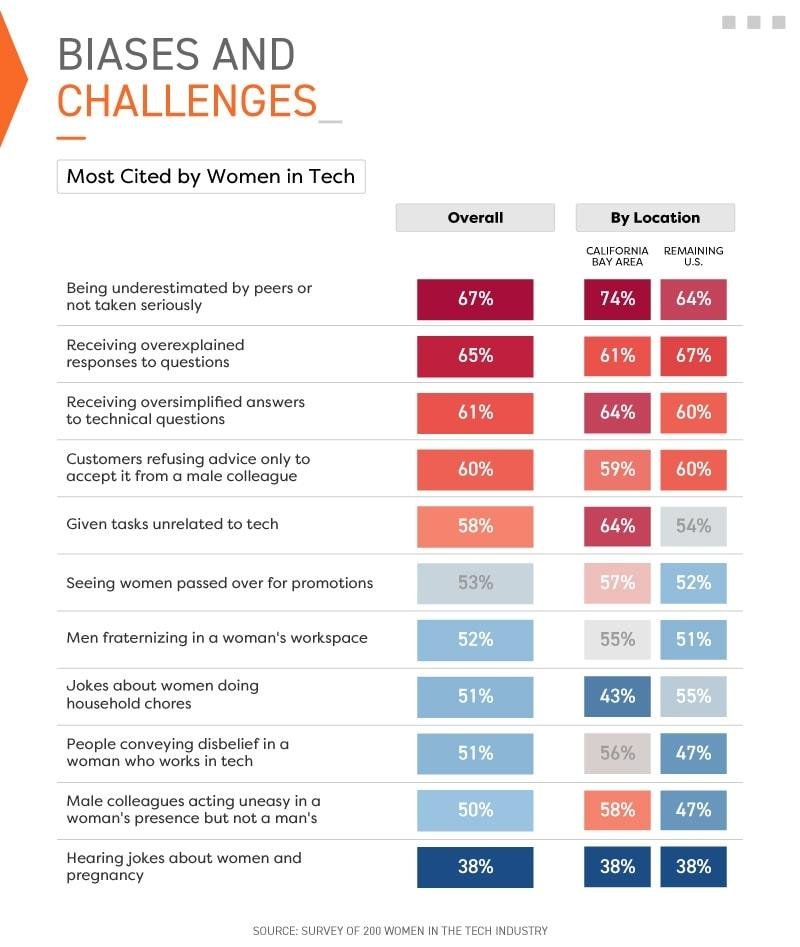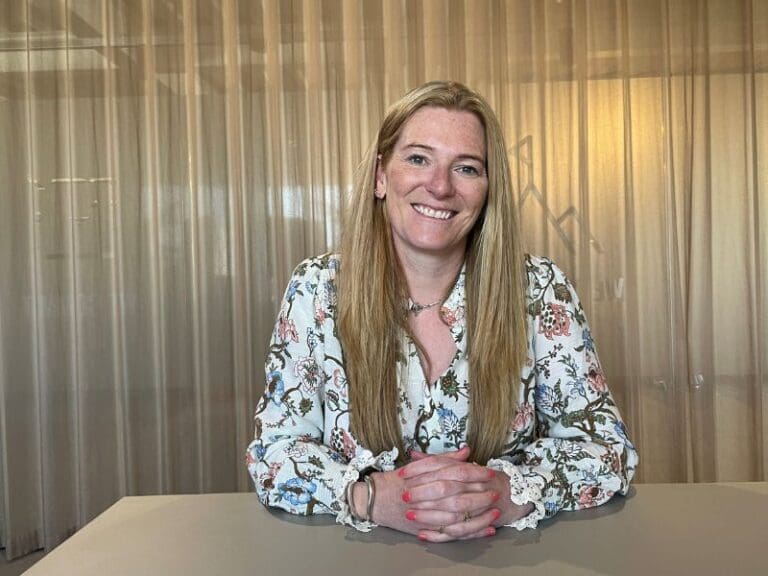A few months ago, I took a course on Leading Without Formal Authority on the recommendation of one of my mentors. They asked me if I could write about my learnings and share them broadly. At the time, I took notes thinking it probably only applied to the unique challenges I was facing and evaded it. As I read more about it I found out that those challenges were actually not that unique at all.
A study from 2020 showed that the biggest challenge faced by Women in Tech is ‘being taken seriously due to gender perception’. Although it has reduced from the previous years, it is still the biggest issue they are tackling.
- Over 60% of Women Working in Technology Feel They Aren’t Taken Seriously – Source: Ivanti.com
- 74% of women working in the Bay Area reported being underestimated or not taken seriously by their peers – Source: Paychex.com

We need systemic change to overcome a lot of these challenges at scale (topic for another article perhaps?).
While we make progress toward that, here are some individual optimisations I learnt to help get the ball rolling…
Develop a leadership mindset
Even if you don’t have a formal team reporting to you, viewing yourself as a leader in your organisation, a driver of change, and a supporter of your colleagues helps you rise to the occasion and do your best work. What does this look like in practice? Let’s take the example of meetings. We all have people in our lives who we know expect us to be on time for meetings and who expect us to be prepared. And they’re not always the boss, they’re the people who model that themselves. That’s how we know they expect it of us. You want to be one of those people.
If it is your meeting
- Set an agenda (review last meeting’s agenda first, if it is recurring)
- Set a goal
- Summarise the meeting with next steps (and key takeaways, if any)
If you are attending the meeting
- Come prepared with what you want to take away from this meeting
- Share your own or your team’s action items at the end of the meeting
Finding opportunities to lead
When you’re on a quest to lead without formal authority, every situation starts to look like one where you can step up to the plate and lead. Make sure that when you choose to lead, your leadership is providing a lot of value to your initiative while helping you grow in your career too.
When these opportunities arise it helps to look through a few lenses:
- Expertise: Step up to the leadership plate when you have experience in whatever the objective, opportunity or challenge is. Even if your experience is from another company or a class you took in university, any subject-matter expertise will give you credibility as an informal leader.
- Relationships: If you personally know a lot of the key stakeholders and have strong relationships with them, your network and influence can be of huge value.
- Professional Growth: It might sound counterintuitive, but one of the best ways to learn is actually to lead. It forces you to do your homework, ask for support, and step outside of your comfort zone. In all of these situations, a common mistake high-performers make is waiting to be asked.
Develop your leadership brand
Leadership isn’t defined by your level, how long you’ve been on your team or with the company. The sum of a lot of small interactions start to form your leadership brand, the type of leader you are. This takes time to build and iterate on – patience and a constructive feedback loop is key while developing it.

As much as working on your weaknesses is important it is even more important to double down on your strengths. A few things to ask yourself are: what are your values? What makes you YOU?
Through this process, stay true to yourself and don’t fall into the trap of replicating behaviours of what has traditionally been classified as a good leader. There is no one way to be a good leader. Observe and learn what you like and what you might do differently, from diverse leaders in your life. Make it your own and you will be more successful in building a sustainable and authentic leadership brand.
Setting Expectations vs Giving Orders
Establishing expectations empowers the team to really own the project and its outcome whereas giving orders does the opposite. By setting expectations, you are creating a way for the project to be successful even in your absence. It is also essential to connect the expectations to the outcome. Those around you should know why the expectations are important and who will be impacted by the result of fulfilling those expectations. Don’t forget to set the macro vision for the project, for example: how does this roll up to the vision of the organisation? Of the company? Use your informal leadership to bring your team higher with you.
When Nothing Works, Get a Sponsor
There will be times when you’ve tried it all and still nothing seems to work (I hear you and I’m sending you a virtual hug!). Individual optimisation is not enough to tackle prevalent issues like this. It might be helpful to lean on a manager’s/program sponsor’s authority. They can come in and make it clear that you will be leading the project and the support of the team is crucial in the success of the project. When they do so, it is now up to you to use that proximity to authority and deliver.
Conclusion
I do acknowledge that all these tips are easier said than done. Everyone’s situation is different and there are so many things that are not in our control. But it’s important to remember that cultivating informal leadership doesn’t happen overnight. So don’t wait! Companies and, honestly, our world needs good leaders right now. Don’t wait until you have the title or the salary or the courage. And don’t wait until you feel 100% confident you can do it perfectly. I want to re-emphasize that individual optimisation combined with systemic change is what will create lasting effects. What are some ways you’ve led without formal authority that worked or didn’t work for you.







